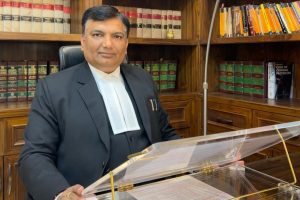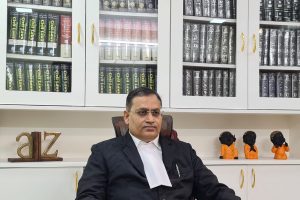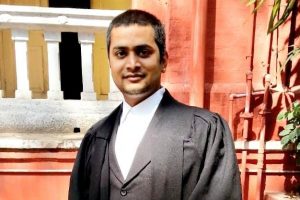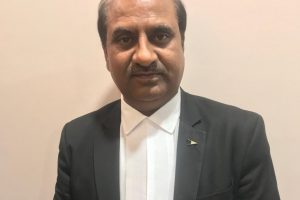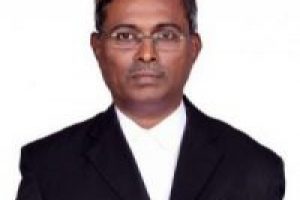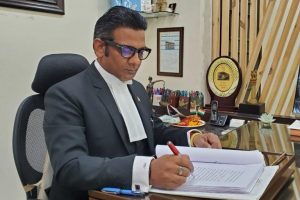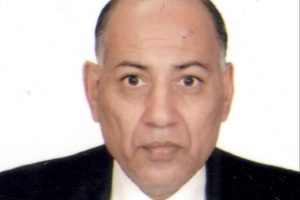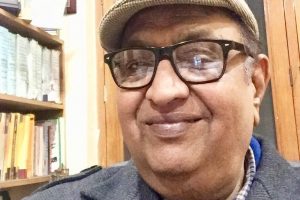Need To Sensitised Central Government
Personal liberty is a precious right we all cherish, Founding fathers of our Constitution, who composed of politicians, statesmen, lawyers and social workers of eminence in their respective specialties and many of whom had experienced traivails of incarceration owning solely to their political beliefs, therefore, assured to the people a Bill of Rights by Part III of our Constitution and thus protecting them against Executive and Legislative despotism. Like Jefferson they believed that an elective despotism was not the government they had fought for.
Article 20(1) of our Constitution, incorporated in the Bill of Rights, contains a prohibition against ex-post facto penal laws. Article 20(2) incorporates a prohibition against double jeopardy. Article 20(3) gives protection against testimonial compulsion. Article 21 proclaims from the house-top that no one will be deprived of his life or personal liberty except according to procedure established by law. Under Article 22(1), it is laid down that every person who is arrested will be disclosed the grounds of his arrest as early as possible and he had a right to consult and to be defended by a legal practitioner of his choice. Still further, under Article 22(2) every person arrested and detained in custody has to be produced before the nearest Magistrate within 24 hours of his arrest. From this scheme it is thus crystal clear that preventive detention or detention without trial is a sort of anathema under our constitutional set up.
At the same time those who were entrusted with the task of administering the land had another view point. According to them, personal liberty had value, provided the security of the State was not jeopardised and maintenance of public order was not threatened. Allegiance to ideals of freedom could not operate in vacuum. No government could afford to take risks in matters relating to the security of the State.
With a view to balance the conflicting view-points the framers of our Constitution made express provision for empowering the Union of India and the States to enact laws authorising preventive detention. They accordingly incorporated Entry 9 in List I of the 7th Schedule conferring competence upon the Union of India to enact laws regarding preventive detention when such laws were required for reasons connected with defence, foreign affairs or the security of India. They further introduced Entry 3 in List III conferring legislative competence upon States concurrently with the Union to provide for preventive detention for reasons connected with the security of the State, maintenance of public order, or the maintenance of supplies and services essential to the community. Thus simultaneously protecting the personal liberties of the people and conferring legislative competence upon the Union and States for enacting laws for preventive detention, the framers of our Constitution balanced the conflicting view points. At the same time safeguards were provided in Article 22 via Clauses 3 to 7 thereof so as to minimize the chances of misuse of arbitrary powers by the legislature and the executive as they had obviously a bitter experience of an alien government trampling upon their human rights.
Hopes of the framers of our Constitution were belied when during the Emergency in the year 1975-76 the number of detenus soared up to 1,75,000. This writer was one amongst those detenus who was detained under MISA for full 19 months alongwith his grand father, father and uncle. They were detained for periods ranging up to 19 months without any trial and without disclosing the grounds of their detention even. Power of preventive detention was grossly misused.
On the eve of coming to power, the Janta Party promised to abolish detention without trial. However, the Janta Government soon came to realize that the provisions empowering the government to detain persons without trial could not be completely abolished as in that event the laws like COFEPOSA meant for dealing with anti-social activities like smuggling could not be retained as this Act authorized detention without trial of those indulged in anti-social activities like smuggling, racketing in foreign exchange and the like. Moreover, such a power was considered necessary to prevent black marketing and the maintenance of essential supplies. It, therefore, had to remain contended by seeking to alleviate rigours of the procedure for preventive detention by effecting changes in Clauses (4) and (7) of Article 22 by enacting the Constitution (44th Amendment) Act, 1978.
Clause 4 of Article 22 of the Constitution to which the above amendment was made by the 44th Amendment reads thus:-
“No law providing for preventive detention shall authorize the detention of a person for a longer period than three months unless:-
(a) An Advisory Board consisting of persons who are, or have been, or are qualified to be appointed as Judges of a High Court has reported before the expiration of the said period of three months that there is in its opinion sufficient cause for such detention;
Provided that nothing in this sub-clause shall authorize the detention of any person beyond the maximum period prescribed by any law made by Parliament under sub-clause (b) of clause (7) ; or
(b) Such person is detained in accordance with the provisions of any law made by Parliament under sub-clauses (a) and (b) of clause (7).”
By Section-3 of the 44th Amendment, a new clause (4) was substituted. Two significant departures were made in the substituted clause. Firstly, the maximum period authorising detention without trial, unless the opinion of the Advisory Board was obtained, was curtailed from three to two months. Second remarkable change in clause (4) by this Amendment was that the Advisory Board had to consist of a Chairman and not less than two other members and the Chairman had to be a serving Judge of the appropriate High Court and the other two members could be serving or retired Judges of any High Court. These appointments were to be made on the recommendation of the Chief Justice of the appropriate High Court. Earlier, the Advisory Boards could be constituted by including persons who were, or had been or were qualified to be appointed as Judges of a High Court.
44th Amendment received the assent of the President on April 30, 1979. Most of its provisions were brought into force with effect from June 20, 1979 by a notification issued by the Central Government on June 19, 1979. The rest of the provisions of this Amendment were brought into force with effect from August 1st, 1979 except Section 3 whereby Article-22 was amended. Thus, the position as it stands today is that the Advisory Board can be constituted to consist of persons who are or have been, or were qualified to be appointed as Judges of the High Court in accordance with the provisions of Article-22 (4) (a) in its original form. Thus, the safeguards introduced by 44th Amendment for the protection of detenus stand reduced to dead letters on account of inaction of the Central Government in issuing the required notification despite the fact that the 44th Amendment was passed by our Parliament some four decades ago.
In A.K. Roy Versus Union of India, AIR 1982 Supreme Court 710, one of the prayers made before the Final Court was for a mandamus directing the Central Government to issue the required notification under Section 1(2) of the 44th Amendment so as to bring into force the necessary changes in Clause (4) of the Article-22. The Apex Court, however, declined to issue mandamus even though it expressed its strong disapproval of the long and unexplained failure on the part of the Central Government to bring Section 3 of the 44th Amendment Act into force.
It is really strange that despite displeasure of the highest court of the land was back in the year 1982, the Union of India till date in the year 2020 has not woken from its slumber and issued the required notification so far. It is indeed disgraceful transgression and trampling by the Executive upon the will of the Parliament. Spirit of constitutionalism has been thrown to the winds by this inaction of the Central Government. There is thus need to sensitize the government. World over one perhaps cannot find a parallel or even a nearly parallel instance of the Executive functioning as a parallel Constituent Assembly and thus negating a constitutional amendment passed by the elected representatives of the people. This power was rather delegated so as to enable the government to make arrangements during transitional period as many difficulties that could immediately crop up could not perhaps be visualized. The Parliament never intended that the Central Government should reduce the will of the people to a mere husk. The Parliament obviously did not intend to confer the veto power upon the Executive that this amendment had to come into force on a date dependent upon its sweet choice. Right of veto on the Executive to nullify or negate a constitutional amendment cannot be countenanced in a parliamentary democracy. Executive in a parliamentary democracy cannot be permitted to betray the confidence of the Parliament. May it be remembered that the amendment in clause (4) effected by 44th Amendment affords to the detenus an assurance that his case will be considered more fairly and objectively by an impartial tribunal. Even since the Gopalan’s jurisprudence the community stands desensitized to the perils of preventive detention and, therefore, it is imperative to provide for the maximum safeguards to the detenus in order to preserve and protect their liberty, which can be achieved by adopting at least the rudiments of due process of law. It is all the more essential when currently various detenus like Sh. Omar Abdulla, Mehbooba Mufti and various others stand detained under the provisions of Public Safety Act. In the case of Omar Abdulla one of the strange grounds behind his detention is said to be his large following in the public.
It is, therefore, high time, that the Central Government should promptly issue the necessary notification so as to bring into force the changes introduced in Article-22 of the Constitution. It is also the duty of the Members of our Parliament to get this 44th Amendment enforced forthwith as they are oath-bound to protect the spirit of constitutionalism.
If the Central Government or the Parliament still fail to rise to the occasion then the Apex Court should review its judgment in A.K. Roy’s case (supra) and issue the required mandamus.
When the great English Judge Lord Mansfield in the case of James Sommer-sett could boast that the air of England was too pure for a slave to breathe, cannot the Indian Judges also say with the same degree of justifiable pride that the sacred land of Bharat will not be allowed to suffer eclipse of the rule of law and that our Constitution and the laws do not permit the Executive to take liberty with liberty?
Of late, the governments have constituted various Advisory Boards in conformity with the 44th Amendment but the same cannot be equated with a constitutional right of the citizenry. Rule of law is the antithesis of arbitrariness. Plato once believed that if philosophers were Kings or Kings philosophers, government by will would be intrinsically superior to the government by law and he so proclaimed in his “Republic”. Experience, however, taught Plato eventually that this ideal was not correct, as when the ordinary mortals were allowed to rule by will alone the interests of the community would be sacrificed to those of the rulers.
© Chawla Publications (P) Ltd.



